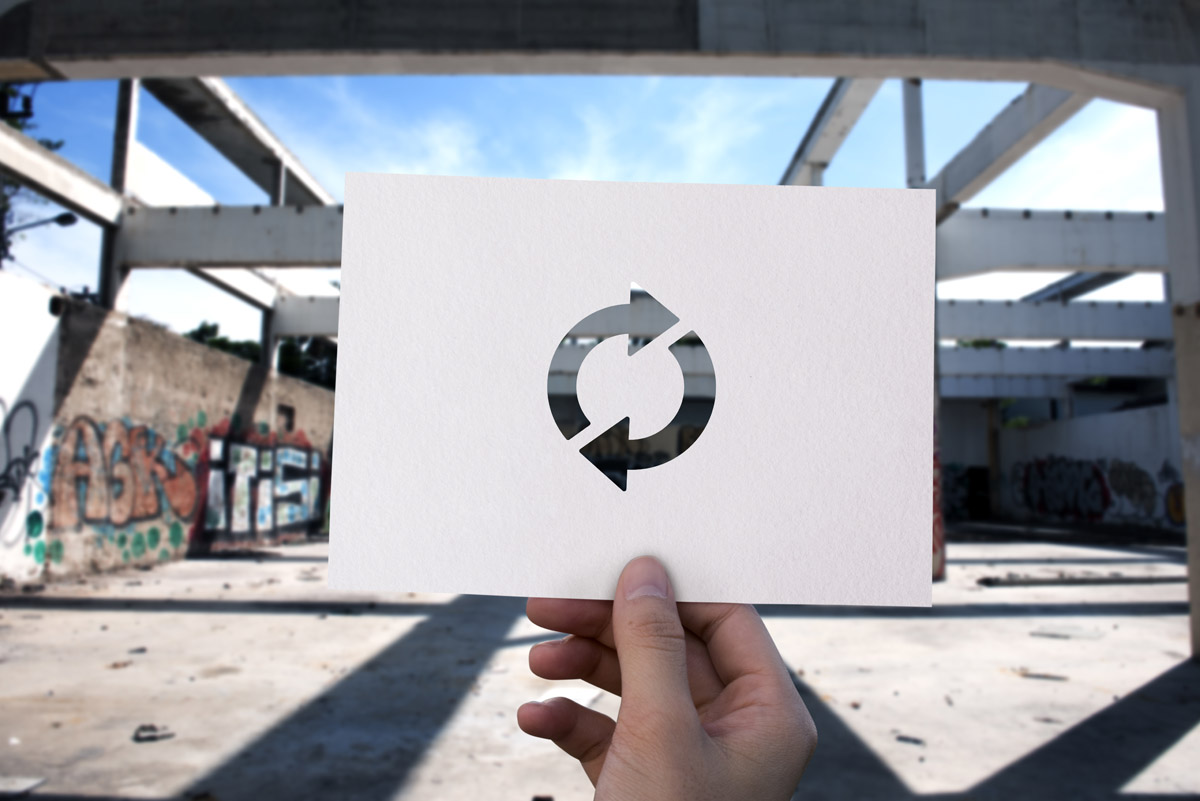Reduce | Reuse | Recycle | Recovery | Disposal
The challenge of waste management
Waste management is a significant and growing problem

The problem and challenge of waste management has become a significant cause of concern, particularly for enterprise. Previously taken for granted, because of the availability of low cost landfill options, the absence of an integrated waste management infrastructure has, in recent times, moved rapidly to the top of the agenda for many of the industrial sectors.
While all industrial sectors produce significant quantities of waste, recent progress has shown that, through the adoption of more sustainable activities such as waste minimization, prevention and recycling, an ever increasing proportion of these wastes are being slowly diverted away from landfill.
It is imperative that the principles of sustainability, encompassing economic, social and environmental aspects, will, in the future, form an integral part of developmental policies in Ireland. The approach should continue to maintain high environmental standards including waste management, while also promoting a competitive enterprise sector.
Although the adoption of an integrated approach to waste management is the goal, it will, however, represent a significant challenge to the industrial sector. There are no easy answers or quick fixes to the waste problems. We must work towards a more sustainable and integrated strategy for the management of wastes. Solutions will require a major change in attitudes in facing up to the waste problem. This is the key task to achieve progress.
An overriding requirement is an acceptance that waste management is a significant and growing problem, caused by and affecting us all. We must foster a culture which puts minimisation, reuse and recycling to the forefront.
To this end we have adopted the key principles as set out in Northern Ireland’s “Wake up to Waste Campaign”
Reduce – through the avoidance or minimisation of waste
Reuse – putting objects into use to delay entry into waste stream
Recycle – reprocessing materials into new raw materials and products
Recovery – recovery of energy from waste products through incineration with energy recovery (EfW) and other available technologies.
Disposal – least desirable option, ensure that it is carried out to a high standard of environmental performance.
To achieve these goals we will:-
Involve Everyone in Everything
• By asking for the support of everyone who works in our business to fully implement changes and to keep them interested in the effort.
• By educating all of our employees on current legislation in the United Kingdom and the Republic of Ireland.
• Management will initiate and promote a company waste management programme so employees feel empowered to act. This has a set of four Waste Management check sheets which are available from Head Office.
• By Communication with members of staff at all levels is essential to the success of the programme – ask for ideas from staff so that they become dedicated to and involved in the effort.
Review of our Waste
We use our in house worksheets to identify and record the different waste generating activities and equipment in your facility, the types of waste produced and any current waste reduction efforts.
• Do a walk-through of our business the day before our regular waste collection
• Observe activities and equipment that generate waste
• Examine the contents of waste containers
• Interview supervisors and employees
• Pay close attention to areas and operations that tend to generate the largest amounts of waste, such as shipping and receiving departments, copying areas, canteens, offices
• Review how much waste management is currently costing your business
• Use our in house worksheet to gain a more detailed profile of the amounts and types of waste generated.
• Collect and sort all of the waste generated during a typical day into the various components, e.g. oils, fuels, glass, paper, plastic wrapping, metal, organics, etc
• Weigh how much of each type of waste is generated
Take Action
Use in house worksheets to plan our actions.
• Start with the easy reduction techniques to generate interest and quick success.
• If you are a large company consider implementing a waste minimization scheme in one department initially.
• Ensure the new system is easy for staff to understand
• Use different coloured bins to collect different materials, such as paper, cans, plastic bottles, cardboard, plastic packaging
• Make recycling accessible – place many recycling bins and fewer disposable waste bins in the work area to make recycling easier
• Have a green office notice board to inform staff of changes in operation, targets to meet and those that have been met, monitoring results, motivational and operational information.
Action Plan
Use our in house worksheets to draw up an Action Plan for our business.
The Action Plan will include:
• Information about your current waste situation
• Targets for improvements
• Actions that need to be taken, by whom and when
• A system to monitor progress
• A celebration when you meet your targets!
